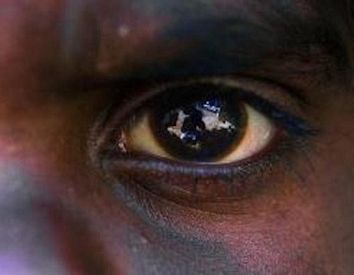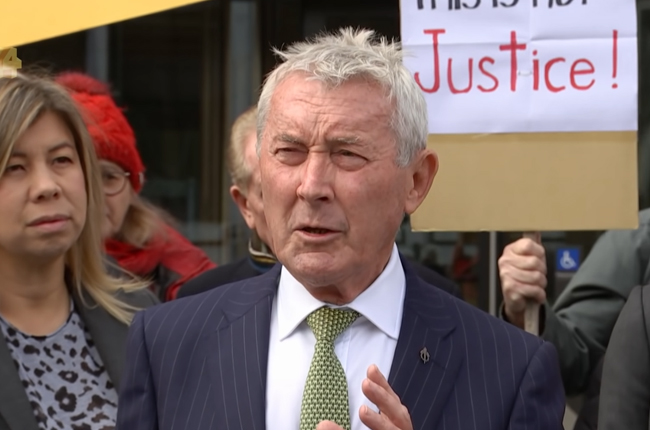One of the most hackneyed weapons in any colonial apologist’s arsenal is the myth former colonies should be grateful to have inherited the British common law system.
“Inherited”, of course, being a euphemism for violently forced upon.
The common law is designed to protect individuals from the state. In a tragic trifecta of high-profile decisions handed down this week, the system has accomplished the opposite.
On Friday, NT police officer Zachary Rolfe was cleared of all charges by a jury after killing Indigenous teenager, Kumanjayi Walker, during an attempted arrest. The jury did not include any Indigenous people, in a territory where one-third of the population is Indigenous.
There have been 500 Indigenous deaths in custody since the 1991 'Royal Commission into Aboriginal Deaths in Custody'. Not one person has been convicted for any of these deaths. 500 victims, 0 perpetrators, it seems. In some of these cases, like Kumanjayi Walker’s or David Dungay Jr’s, the evidence was overwhelming and overwhelmingly confronting.
The total absence of justice for Indigenous deaths in custody is one of many ways the legal system has failed Indigenous Australians.
For starters, the legal system has never properly grappled with its own legitimacy in lands over which Aboriginal sovereignty was never ceded and a treaty was never entered into. Britain’s legal claim to this country was a fiction. The Mabo decision recognised that terra nullius was a myth but never confronted the repercussions of that incurable flaw.
Indigenous Australians are hugely overrepresented in the criminal justice system. They represent only three per cent of the population, yet make up more than 29 per cent of the prison population. Indigenous children are jailed at 20 times the rate of non-Indigenous children.
But really there is nothing startling about the fact that the same legal system that sanctioned the theft of this country and the slavery, discrimination, oppression of Indigenous Australians as well as the Stolen Generations continues to fail Indigenous Australians and shelter the white perpetrators who harm them.
If the UK Supreme Court represents the high watermark of common law decision-making, then what hope do we have? On Tuesday, that Court refused to hear WikiLeaks founder Julian Assange’s appeal against a judgment by the High Court in December that found he could be extradited after assurances from the U.S. authorities with regard to prison conditions.
Almost every major civil liberties and human rights group has condemned the Assange case as an existential threat to journalism. And in the context of the justified global uproar against Russian war crimes in Ukraine, the role of journalists in exposing war crimes has never been in greater need of preservation.
The legal crusade against Julian Assange is political and always has been that way. Assange, one individual, faces 175 years in prison, a life and death sentence, for exposing the war crimes of the most powerful of states.
Theoretically, the common law exists to come to the rescue of people like Assange and yet it has served him up on a platter to the terrifying beast that seeks to devour him.
As Amnesty International says:
'[The] decision is a blow to Julian Assange and to justice. The Supreme Court has missed an opportunity to clarify the UK’s acceptance of deeply flawed diplomatic assurances against torture…Demanding that states like the UK extradite people for publishing classified information that is in the public interest sets a dangerous precedent and must be rejected..'
Tuesday was also a heartbreaking day for the most vulnerable of individuals, children, standing up against the state in the courts of the colony. The Full Federal Court unanimously overturned an earlier finding that the Minister for the Environment has a duty to take reasonable care to avoid causing personal injury to children when deciding to approve a coal mine extension.
The decision was essentially a green light to the Government and corporations to continue wrecking the climate in the face of overwhelming evidence that doing so would have catastrophic consequences for children.
All of the evidence of the existential threat posed by climate change, and the fact that climate change is caused by fossil fuels, was accepted by the Court. And yet, the Minister for the Environment, who holds enormous power and discretion to perpetuate climate change, was found to owe nothing to the children whose futures are being irreparably harmed by climate change.
I have no doubt that any number of legal experts would be able to defend each of these decisions based on the most sophisticated of technical arguments.
But who cares about finessed points of law when ultimately, these decisions are all patently unjust to anyone with a functioning moral compass?
How can a person who shoots a 19-year-old in the back three times walk away an innocent man acting in self-defence?
How can a hero who revealed war crimes face 175 years in prison while the people who committed those war crimes walk free?
Whose job is it to protect children from climate change if not the Government, when they are the ones with the power to approve the coal mines that are choking their future?
If a legal system exists in part to ensure justice and the protection of human rights, then any legal system that reaches these decisions deserves thorough scrutiny. It’s worth noting that in the colony, the majority of us cannot even afford to access the legal system which purportedly exists for our protection.
It’s also worth noting that the majority of judges in Australia's legal system are privileged white men from elite private schools.
Reimagining a drastically fairer legal system is a daunting task, but it is necessary to meaningfully attempt to decolonise Australia.
Hannah Thomas is a lawyer currently working in public policy. She has a keen interest in Australian and Malaysian politics.
Related Articles
- Assange wins right to appeal against extradition
- Julian Assange — a thousand days in Belmarsh
- Australian media must stand up for Assange's freedom
- AUKUS alliance driving Assange to his death
- Coalition lends voices of support for Assange
 This work is licensed under a Creative Commons Attribution-NonCommercial-NoDerivs 3.0 Australia License
This work is licensed under a Creative Commons Attribution-NonCommercial-NoDerivs 3.0 Australia License
Support independent journalism Subscribe to IA.















